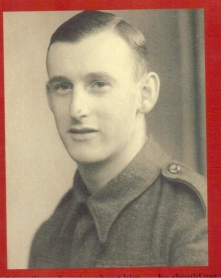
Bertie Mee
Bertie Mee: a Second World War-worker at Netley Hospital
Born on Christmas Day 1918, Bertie May followed his older brother George into Mansfield Town’s football team. But his 13 games in the Third Division (South) in 1938-39 would be his Football League lot.
Joining the Royal Army Medical Corps in July 1939, he was posted to what was then called the School for Massage at Netley Hospital when war was declared, a few weeks later, to serve as a physiotherapist.
Bertie was soon running the hospital’s football team. When it “licked the Southampton Police,” which had by now acquired pretty much a team-full of Saints, Southampton’s manager, Tom Parker, came for him, as Bertie recollected in a 1998 interview. He duly signed for Southampton in October 1940. This was not the best of timing. Having driven the British Army out of France at Dunkirk in June, the Germans were able to fly from more airfields on the Channel coast, so England’s south coast towns had been taking a hammering from the start of the season.
If the Luftwaffe came in the afternoon, it could be difficult to complete a 90-minute fixture amid air-raids. But worse was to come for Southampton. On 30 November 1940, a bomb hit The Dell, creating a flood and rendering the ground unplayable. The season’s remaining fixtures would all be played away. Especially if they stopped somewhere for fish and chips after an afternoon game – “meals didn’t exist,” Bertie recalled in that 1998 interview – the evening air-raids could now become a problem, of which he retained “a vivid memory”.
Once his team-mates had been dropped off in Southampton, he could have a long wait “at the Woolston Ferry, just looking at everything: the flames; bombs flying everywhere; keeping our fingers crossed; and then arriving back at Netley at four, five in the morning.”
After a while, Bertie told the manager that this was “too much” and to “count me out”. But he would stay in the game. When Walter Winterbottom began his national coaching courses after the War, Bertie would lecture on the treatment of injuries. Then, in 1960, he became the physio at Arsenal. Promoted to manager in 1966, he spent 10 years in that role, in which, said his goalkeeper Bob Wilson, “he brought Arsenal back from the dead,” most notably in 1971, when they won the League and Cup double.
He died on 21 October 2001, aged 82.
The above Appreciation by David Bull is based on his 1998 interview with Bertie Mee, conducted for Dell Diamond, his biography of Ted Bates, as supplemented by material from David Tossell’s 2005 biography of Mee.
My sincere thanks to David for sending me this and opening up yet another subject to research - Football! Did you know that the Netley football team were called The Geneva Cross in the beginning?
If anybody would like to research the football and cricket teams from the hospital, please let me know. It would be good to find out more about them.

